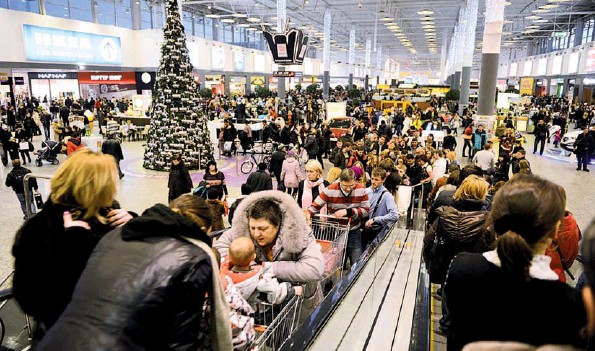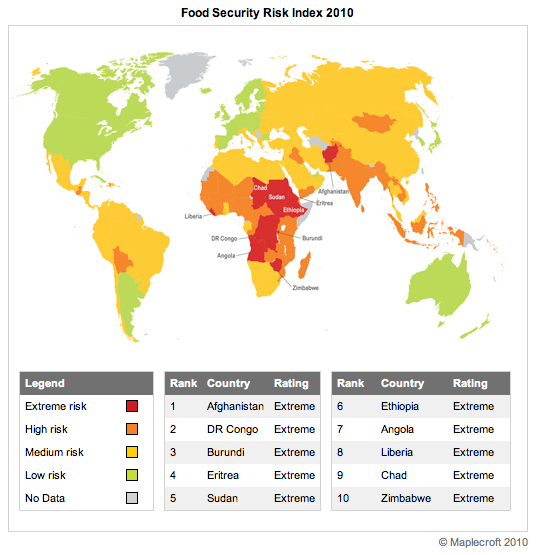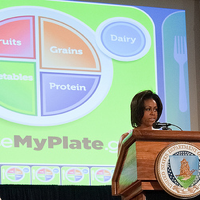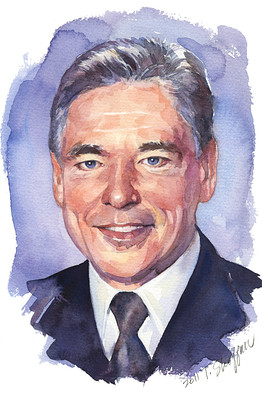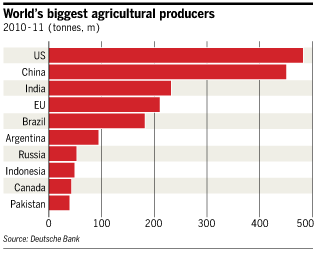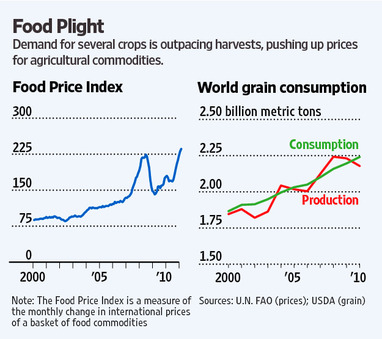Nations Are Only As Resilient As Their Middle Class is Happy
 Monday, January 11, 2016 at 2:30PM
Monday, January 11, 2016 at 2:30PM  IN HIS BRILLIANT BOOK ON "THE MORAL CONSEQUENCES OF ECONOMIC GROWTH," HARVARD POLITICAL ECONOMIST BENJAMIN FRIEDMAN DEMONSTRATED HOW AMERICA'S RESILIENCE AS A NATION IS - AND ALWAYS HAS BEEN - DIRECTLY RELATED TO THE ECONOMIC VITALITY OF ITS MIDDLE CLASS. Whenever that middle class enjoyed rising income and expanding economic opportunity, the nation was more welcoming of immigrants, more tolerant of diversity, more progressive in its reforms, and more beneficently - and outwardly - focused in its state affairs. In short, a happy middle class makes for a better America and better American leadership in this world. But, when the opposite conditions arise, and the US middle class feels pressed upon, marginalized, and economically threatened, then America inevitably turns less welcoming of immigrants, less tolerant of diversity, more regressive in its politics, and more withdrawn from global affairs.
IN HIS BRILLIANT BOOK ON "THE MORAL CONSEQUENCES OF ECONOMIC GROWTH," HARVARD POLITICAL ECONOMIST BENJAMIN FRIEDMAN DEMONSTRATED HOW AMERICA'S RESILIENCE AS A NATION IS - AND ALWAYS HAS BEEN - DIRECTLY RELATED TO THE ECONOMIC VITALITY OF ITS MIDDLE CLASS. Whenever that middle class enjoyed rising income and expanding economic opportunity, the nation was more welcoming of immigrants, more tolerant of diversity, more progressive in its reforms, and more beneficently - and outwardly - focused in its state affairs. In short, a happy middle class makes for a better America and better American leadership in this world. But, when the opposite conditions arise, and the US middle class feels pressed upon, marginalized, and economically threatened, then America inevitably turns less welcoming of immigrants, less tolerant of diversity, more regressive in its politics, and more withdrawn from global affairs.Any guesses as to which phase America is in now? Since enduring the 2008 subprime crash that set off the Great Recession that still reverberates throughout the vast majority of US households?
America's middle class is not happy right now, and hasn't been in quite some time. But this is not the first time the US has endured this sort of inner rage and political tumult.
And while it may come as a surprise, when America has previously endured such clear class tensions, our tendency has been to reach for a New York patrician - as in Theodore and Franklin Roosevelt. Could Manhattan billionaire Donald Trump and former NY Senator Hillary Clinton, the current Republican and Democratic front-runners, respectively, for the US presidency meet such lofty historical standards? Only time can tell. My sole point in the comparison is to suggest that America has met this historical challenge before, and regained its economic and political footing.
I have no doubt that this time around will be our most difficult test yet, if only because this globalization - largely of America's creating and spreading - now poses competitive economic challenges of unprecedented ferocity and complexity.
We live in an age when corporate CEOs declare their firms too vast and too complex for even they to understand - much less ethically operate, when national leaders reach for "firewall" solutions versus tackling internal problems head-on, and when great powers no longer aim to defeat the enemies of order but merely to "thin their herds" on a consistent basis.
So, no surprise, Americans are more fearful of the present and future than they've been in a long time. Our middle class is desperately unhappy, and that makes America desperately unhappy.
Unhappy societies are not resilient societies. They're brittle as all get-out. Shocks tend to shatter, pushes come to shoves, and civil discourse is anything but civil.
But a reasonably happy society, one with a rapidly expanding middle class? That nation can face all manner of problems, dangers, threats, and deprivations and remain unusually resilient. I travel to China frequently in my work, and I am constantly amazed at how upbeat people are there now - despite the myriad of challenges there. Could that all reverse the minute China's expanding middle class suffered a profound set-back? Quite possibly. But a lot depends on that middle class's sense of historical advance. Right now, no matter what happens in China, life for the growing middle is one heckuva lot better than it was 10, 20, 30, 40 or even 50 years ago. That buys you a lot of social resilience.
Nigeria falls into a similar category. Does it have problems? They're absolutely godawful. But this is a country where middle-class households are growing at a fantastic rate, where just-opened shopping centers attract crowds like a new ride at Disney World. You make that big of a chunk of your population optimistic about the future, and that buys you a lot of social resilience.
So where does that leave America? Searching for answers right now and angry as hell.
 Teddy Roosevelt promised a "square deal," while FDR promised a "new deal." Go watch the hit movie "The Big Short" and you'll readily understand why so many Americans feel like they've been given a raw deal. There's that sense that circumstances need to be re-rationalized, markets re-tamed, and the economic playing field re-graded . . . all a good deal more in favor of the "99%." As we saw with the two Roosevelts, that's not so much a Republican or Democratic thing as a "traitor to your class" thing, meaning Americans tend to reach for a One-Percenter in these circumstances (recall how viciously both TR and FDR were pilloried by their fellow plutocrats for their reforms).
Teddy Roosevelt promised a "square deal," while FDR promised a "new deal." Go watch the hit movie "The Big Short" and you'll readily understand why so many Americans feel like they've been given a raw deal. There's that sense that circumstances need to be re-rationalized, markets re-tamed, and the economic playing field re-graded . . . all a good deal more in favor of the "99%." As we saw with the two Roosevelts, that's not so much a Republican or Democratic thing as a "traitor to your class" thing, meaning Americans tend to reach for a One-Percenter in these circumstances (recall how viciously both TR and FDR were pilloried by their fellow plutocrats for their reforms).
 US,
US,  global middle class,
global middle class,  resilience | in
resilience | in  Citation Post |
Citation Post |  Email Article |
Email Article |  Permalink |
Permalink |  Print Article
Print Article 











